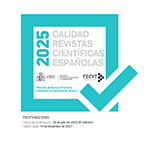The sustainability of fact checking in polarized times. Case study of Argentina during the pandemic
Abstract
Is there a reputational cost for fact checking organizations when they correct false content that was previously shared on social networks? In this paper we describe a survey experiment implemented during the first wave of the Argentine Electoral Panel and included 5,757 respondents. The study arrives at a series of results. First, it measures the propensity to share content about the pandemic when it is ideologically congruent or dissonant with their preferences. Second, it shows that users perceive the fact checker as ideologically biased (biased perception) after being corrected. The evidence shows a greater inclination to share corrections that favor the position of the respondent (pro-attitudinal) and, on the other hand, a modest increase in the perception of ideological distance between the respondent and the fact checker when the corrections contradict their previous beliefs (counter-attitudinal).
Downloads
Article download
License
In order to support the global exchange of knowledge, the journal Estudios sobre el Mensaje Periodístico is allowing unrestricted access to its content as from its publication in this electronic edition, and as such it is an open-access journal. The originals published in this journal are the property of the Complutense University of Madrid and any reproduction thereof in full or in part must cite the source. All content is distributed under a Creative Commons Attribution 4.0 use and distribution licence (CC BY 4.0). This circumstance must be expressly stated in these terms where necessary. You can view the summary and the complete legal text of the licence.










